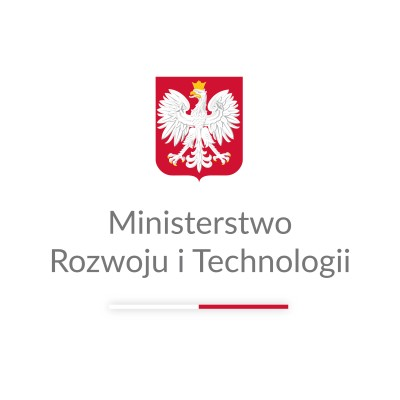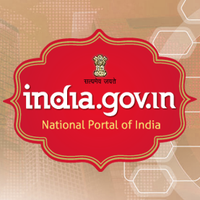Modi's Diplomatic Dance: Navigating the Ukraine Crisis
August 28, 2024, 6:37 pm

Location: Poland, Masovian Voivodeship, Warsaw
Employees: 1001-5000
Founded date: 2021
In a world where alliances shift like sand, Indian Prime Minister Narendra Modi is stepping onto a precarious stage. His recent visit to Ukraine marks a significant moment in international diplomacy. It’s a dance of balance, a tightrope walk between old friendships and new partnerships. Modi’s journey is not just about Ukraine; it’s about India’s place in a rapidly changing global landscape.
On August 23, 2024, Modi arrived in Kyiv, a city battered by war yet resilient in spirit. He met with Ukrainian President Volodymyr Zelenskyy, aiming to broker peace in a conflict that has drawn in nations far and wide. This visit is historic. It’s the first time an Indian prime minister has set foot in Ukraine, a bold move that signals India’s evolving foreign policy.
Modi’s approach is layered. He seeks to position India as a peacemaker, a nation that advocates for dialogue over destruction. He has expressed a desire to share perspectives on resolving the ongoing conflict. This is a delicate balancing act. India has long-standing ties with Russia, dating back to the Cold War. Yet, as the world watches, Modi is attempting to pivot towards the West, courting closer ties with nations like Poland and Ukraine.
Before arriving in Kyiv, Modi made a stop in Poland. This visit was not just a formality; it was a strategic move. Poland is a key ally for Ukraine and a vital transit point for international leaders. Modi’s meetings with Polish officials underscored the importance of strengthening economic ties. The message was clear: India is ready to play a larger role in European security.
The backdrop of Modi’s visit is fraught with tension. Russia’s invasion of Ukraine has reshaped global alliances. Modi’s previous diplomatic engagements have drawn criticism. His visit to Moscow in July, just hours after a devastating missile strike in Ukraine, raised eyebrows. Images of Modi embracing Russian President Vladimir Putin did not sit well with many in Kyiv. This visit to Ukraine is an attempt to mend fences and show that India is not merely a bystander in this conflict.
India’s stance has been one of cautious neutrality. It has avoided outright condemnation of Russia, instead calling for dialogue. This position reflects India’s complex relationship with Moscow, where it has historically relied on Russian military support. However, the war has also brought human costs for India. Reports of Indian nationals being sent to fight in Ukraine have surfaced, adding a layer of urgency to Modi’s diplomatic efforts.
The stakes are high. Modi’s visit is not just about peace talks; it’s about positioning India as a global player. The world is watching how India navigates this crisis. Will it continue to maintain its ties with Russia while fostering new relationships with the West? The answer lies in Modi’s ability to adapt and respond to the shifting sands of international relations.
As Modi engages with Zelenskyy, the focus will be on tangible outcomes. Both leaders are expected to sign several documents aimed at deepening cooperation. This is more than a symbolic gesture; it’s a step towards solidifying India’s role in European security. Modi’s commitment to peace is commendable, but the effectiveness of his diplomacy will be measured by results.
The geopolitical landscape is changing. China looms large as a regional rival, pushing India to seek stronger partnerships with Western nations. Modi’s balancing act is not just about Ukraine; it’s about securing India’s future in a multipolar world. The challenge is to maintain relationships with old allies while forging new ones.
Modi’s visit to Ukraine is a moment of reckoning. It’s a chance for India to redefine its role on the global stage. The world is in flux, and nations are reevaluating their alliances. Modi’s ability to navigate this complex terrain will determine India’s influence in the years to come.
In conclusion, Modi’s diplomatic journey to Ukraine is a pivotal moment. It’s a test of India’s foreign policy and its commitment to peace. As the echoes of war resonate in Kyiv, Modi’s words will carry weight. The path ahead is fraught with challenges, but it also holds the promise of new beginnings. The dance of diplomacy continues, and India is ready to take center stage.
On August 23, 2024, Modi arrived in Kyiv, a city battered by war yet resilient in spirit. He met with Ukrainian President Volodymyr Zelenskyy, aiming to broker peace in a conflict that has drawn in nations far and wide. This visit is historic. It’s the first time an Indian prime minister has set foot in Ukraine, a bold move that signals India’s evolving foreign policy.
Modi’s approach is layered. He seeks to position India as a peacemaker, a nation that advocates for dialogue over destruction. He has expressed a desire to share perspectives on resolving the ongoing conflict. This is a delicate balancing act. India has long-standing ties with Russia, dating back to the Cold War. Yet, as the world watches, Modi is attempting to pivot towards the West, courting closer ties with nations like Poland and Ukraine.
Before arriving in Kyiv, Modi made a stop in Poland. This visit was not just a formality; it was a strategic move. Poland is a key ally for Ukraine and a vital transit point for international leaders. Modi’s meetings with Polish officials underscored the importance of strengthening economic ties. The message was clear: India is ready to play a larger role in European security.
The backdrop of Modi’s visit is fraught with tension. Russia’s invasion of Ukraine has reshaped global alliances. Modi’s previous diplomatic engagements have drawn criticism. His visit to Moscow in July, just hours after a devastating missile strike in Ukraine, raised eyebrows. Images of Modi embracing Russian President Vladimir Putin did not sit well with many in Kyiv. This visit to Ukraine is an attempt to mend fences and show that India is not merely a bystander in this conflict.
India’s stance has been one of cautious neutrality. It has avoided outright condemnation of Russia, instead calling for dialogue. This position reflects India’s complex relationship with Moscow, where it has historically relied on Russian military support. However, the war has also brought human costs for India. Reports of Indian nationals being sent to fight in Ukraine have surfaced, adding a layer of urgency to Modi’s diplomatic efforts.
The stakes are high. Modi’s visit is not just about peace talks; it’s about positioning India as a global player. The world is watching how India navigates this crisis. Will it continue to maintain its ties with Russia while fostering new relationships with the West? The answer lies in Modi’s ability to adapt and respond to the shifting sands of international relations.
As Modi engages with Zelenskyy, the focus will be on tangible outcomes. Both leaders are expected to sign several documents aimed at deepening cooperation. This is more than a symbolic gesture; it’s a step towards solidifying India’s role in European security. Modi’s commitment to peace is commendable, but the effectiveness of his diplomacy will be measured by results.
The geopolitical landscape is changing. China looms large as a regional rival, pushing India to seek stronger partnerships with Western nations. Modi’s balancing act is not just about Ukraine; it’s about securing India’s future in a multipolar world. The challenge is to maintain relationships with old allies while forging new ones.
Modi’s visit to Ukraine is a moment of reckoning. It’s a chance for India to redefine its role on the global stage. The world is in flux, and nations are reevaluating their alliances. Modi’s ability to navigate this complex terrain will determine India’s influence in the years to come.
In conclusion, Modi’s diplomatic journey to Ukraine is a pivotal moment. It’s a test of India’s foreign policy and its commitment to peace. As the echoes of war resonate in Kyiv, Modi’s words will carry weight. The path ahead is fraught with challenges, but it also holds the promise of new beginnings. The dance of diplomacy continues, and India is ready to take center stage.
